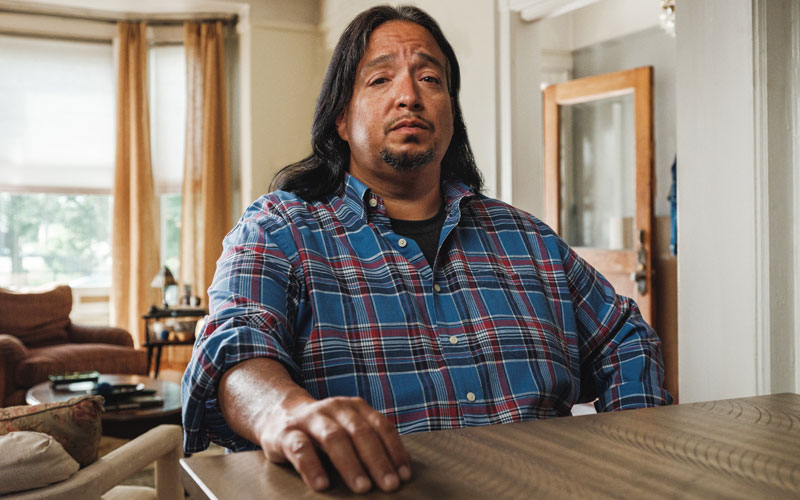CDC Highlights Great American Smokeout
Per the notice below, the Centers for Disease Control and Prevention (CDC) is highlighting the Great American Smokeout.
Great American Smokeout: Make Today Your Quit Day!
At a glance
Quitting smoking is one of the most important steps you can take to improve your health. Join the Great American Smokeout and make today your quit day!

Make today your quit day!
Are you ready to quit smoking? Quitting smoking improves your health, but it can be hard to do. You don't have to do it alone! On November 21, please join people across the country for the American Cancer Society's Great American Smokeout. Remember, the key to success is to keep trying and not give up. More than half of U.S. adults who have ever smoked have quit. Make the Great American Smokeout your day to quit smoking!
Resources
Download Great American Smokeout resources to help people on their quit journey. These resources are for use in workplaces, health systems, and other places in your community.
There are proven treatments to help you quit.
Many people who smoke become addicted to nicotine, the addictive substance found in tobacco. This can make it hard to quit smoking. But the good news is there are proven treatments that can help you quit. Make them a part of your quit plan.
Counseling
Counseling—advice from a quit coach or a health care professional—can help you make a plan to quit smoking. Counseling can also prepare you to cope with stress, urges to smoke, and other issues when trying to quit.
Quitlines are proven to increase your chance of quitting successfully and staying quit. Calling a quitline is free and confidential. When you call, a quit coach will work with you to develop a plan that is personalized for your needs. Quit coaches are all trained to be good listeners and to give callers encouragement, support, and tips to help you be successful.
Quit-smoking medicines
Quit-smoking medicines can help you manage nicotine withdrawal symptoms and cravings, which helps you stay confident and motivated to quit. There are seven U.S. Food and Drug Administration (FDA) approved medicines for adults to use when quitting smoking. These medicines can help you quit in three ways:
- They make quitting less painful.
- They are much safer than smoking.
- They help get you through the toughest times.
Counseling and quit-smoking medicines together
Using counseling and quit-smoking medicines together gives people who smoke the best chance of quitting. Many treatments and resources may be available to you for free of charge or may be covered by your insurance.
Noel S.’s Story

Noel, age 42, started smoking menthol cigarettes at age 13. Most of his friends growing up in Brooklyn, New York, smoked. Noel thought it was the "cool" thing to do. Noel smoked two packs of cigarettes a day for more than 20 years. He smoked six or seven cigarettes every morning just between waking up and leaving for work. "I'd wake up, smoke. Get in the shower, smoke. Get dressed, smoke. Have a cup of coffee, smoke."
Noel's addiction to cigarettes affected his life in many ways. He rarely slept through the night because he woke up every few hours to smoke. He lost a job as a ride-share driver because passengers continually complained that his car smelled like an ashtray. His biggest regret was missing the funeral of an uncle who passed away in Puerto Rico. Noel refused to fly because he couldn't tolerate the idea of not being able to smoke on a flight. "He was like a father to me and yet I couldn't go to his funeral because I couldn't get on an airplane," Noel said.
At age 36, Noel suffered a heart attack and was hospitalized for a week. He realized that if he continued to smoke, he would die. He knew he had to make healthier choices if he wanted to be around to watch his younger family members grow up. He couldn't bear the thought that he might not be there for his family. This motivated Noel to quit smoking, change his diet, and exercise regularly. He has been smokefree since.
Benefits of quitting smoking
Quitting smoking has health benefits at any age, no matter how long or how much you have smoked. Quitting smoking:
- Improves health status and enhances quality of life.
- Reduces the risk of premature death and can add as much as 10 years to life expectancy.
- Reduces the risk for many adverse health effects, including cardiovascular diseases, chronic obstructive pulmonary disease (COPD), cancer, and poor reproductive health outcomes.
- Benefits people already diagnosed with coronary heart disease or COPD and can improve the prognosis of patients with cancer.
- Benefits the health of pregnant people and their fetuses and babies.
- Reduces the financial burden that smoking places on people who smoke, health care systems, and society.
Quitting smoking is the single best way to protect family members, coworkers, friends, and others from the health risks associated with breathing secondhand smoke.
Free quitting resources
Telephone
- 1-800-QUIT-NOW
- 1-855-DÉJELO-YA (Español)
- 1-800-838-8917 (中文)
- 1-800-556-5564 (한국어)
- 1-800-778-8440 (Tiếng Việt)
Smartphone apps and text
- Text QUITNOW to 333888 (Message and data rates may apply)
- quitSTART app
Web
Smoking and Tobacco Use
Commercial tobacco use is the leading cause of preventable disease, disability, and death in the United States.

